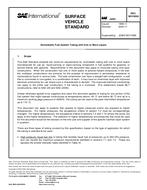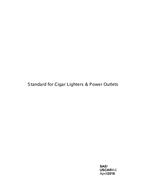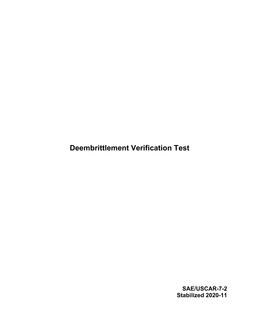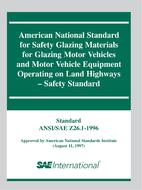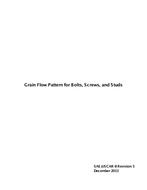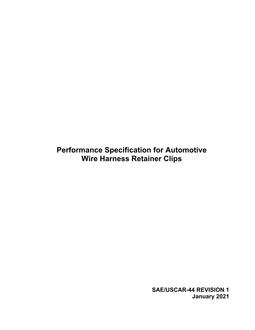Description
This SAE Standard presents the minimum requirements for nonmetallic tubing with one or more layers manufactured for use as liquid-carrying or vapor-carrying component in fuel systems for gasoline, or alcohol blends with gasoline. Requirements in this document also apply to monowall tubing (one layer construction). When the construction has one or more layers of polymer-based compounds in the wall, the multilayer constructions are primarily for the purpose of improvement in permeation resistance to hydrocarbons found in various fuels. The tube construction can have a straight-wall configuration, a wall that is convoluted or corrugated, or a combination of each. It may have an innermost layer with improved electrical conductivity for use where such a characteristic is desired. The improved electrical conductivity can apply to the entire wall construction, if the tubing is a monowall. (For elastomeric based MLT constructions, refer to SAE J30 and SAE J2405).Unless otherwise agreed to by suppliers and users this document applies to tubing for any portion of the fuel system that might operate continuously at temperatures above -40 C and below 90 C and up to a maximum working gage pressure of 450kPa. The tubing can be used at the peak intermittent temperature up to 115 C.This document can apply to systems that operate at higher pressures and/or are exposed to higher temperatures. For higher pressures, the acceptance criteria of section 7.2 must be correspondingly changed. For higher temperatures, the acceptance criteria of sections 7.2 and 7.14 remain the same, but apply at the higher temperature. The selection of higher temperatures and pressures that could be used for this document would be the decision of the end user and supplier of the specific fuel/fuel vapor system in question.
Product Details
- Published:
- 11/01/2004
- File Size:
- 1 file , 570 KB

